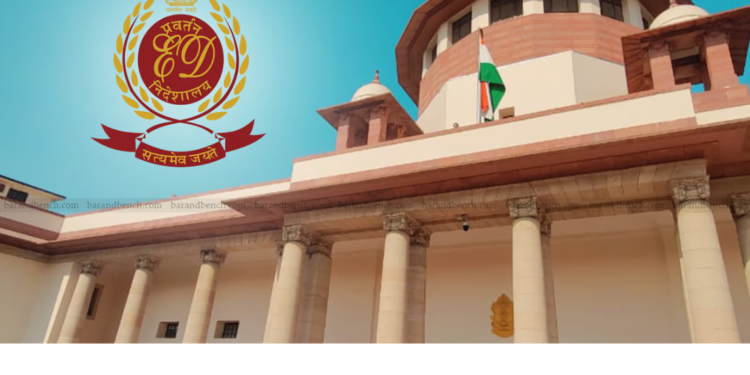The Supreme Court ruled on Thursday that the Enforcement Directorate (ED) cannot arrest an accused who appears in response to special court summons in a Prevention of Money Laundering Act (PMLA) complaint without seeking permission from the court.
A Bench comprising Justice Abhay S Oka and Justice Ujjal Bhuyan also held that an accused, who was not arrested by the ED during a money laundering probe but appears before the special court pursuant to its summons, does not need to satisfy the stringent bail criteria under Section 45 of the PMLA.
“If the ED seeks custody of the accused after the person appears following summons, the ED must apply to the special court. The court will grant custody only if satisfied with reasons that custodial interrogation is necessary,” the Court stated.
Essentially, ED officers are barred from exercising their special powers to arrest an accused under Section 19 of the PMLA once a complaint has been lodged against the accused, and the accused was not arrested during the investigation.
Section 19 empowers ED officers to arrest an accused if they have a “reason to believe” that the person has committed an offence punishable under the Act.
The ruling was delivered in a case addressing whether an accused in a money laundering case must still meet the stringent bail conditions after appearing before the special court following summons issued based on the ED’s complaint.
The Supreme Court, which had reserved its judgment on April 30, considered whether an accused can seek bail under the regular provisions of the Code of Criminal Procedure (CrPC) upon appearing pursuant to summons issued by the special court under the PMLA.

















